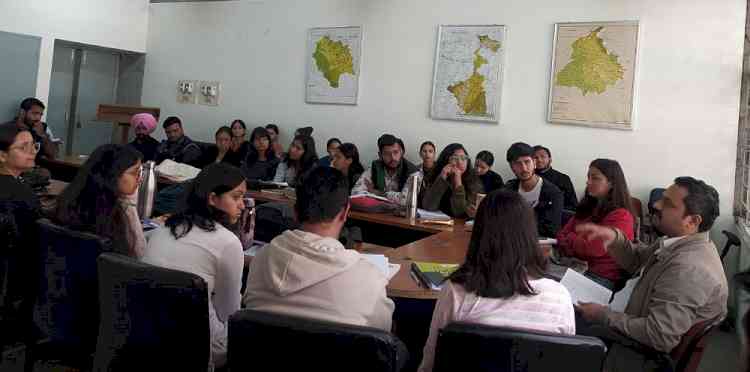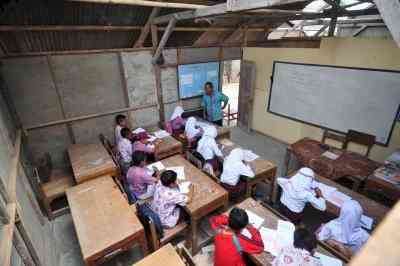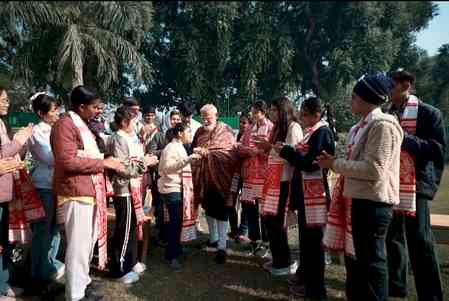Commemorative lecture to celebrate birth anniversary of Maharishi Dayanand Saraswati
The Department of Political Science, Panjab University organised a commemorative lecture to celebrate the birth anniversary of one of the eminent social thinker and reformer Maharishi Dayanand Saraswati (1824-1883) who founded the Arya Samaj in 1875.

Chandigarh, February 20, 2023: The Department of Political Science, Panjab University organised a commemorative lecture to celebrate the birth anniversary of one of the eminent social thinker and reformer Maharishi Dayanand Saraswati (1824-1883) who founded the Arya Samaj in 1875. Dr Ashish Kumar of the University Department of History made a presentation on the seminal ideas of Maharishi Dayanand Saraswati as a part of the ongoing 200th Jayanti celebrations of Maharishi as well as G-20 youth programme. Dr Kumar observed that the 19th century in India’s history saw an intense churning of great many thoughts, when many thinkers and philosophers gave a call for social and religious reform of India’s Hindu society, Maharishi Dayanand Saraswati (1824-1883) being one of them. Maharishi invoked the authority of the Vedas as the most authentic Indian religious texts. In his seminal work Satyartha Prakash, Maharishi elaborated his views on Hindu society, its past, present and possible future. Having rejected brahminical priesthood, child marriage, untouchability and caste system, Maharishi sought to purge Hinduism of all its post-Vedic accretions and at the same time, he supported widow remarriage, inter-caste marriages and female education. He put the Aryans - the practitioners of the Vedas, into God’s chosen people to whom the Veda had been revealed and whose language was the source of all Indo-European languages. The opposite of an Arya (excellent man) was Dasyu (wicked man), and this binary of Arya and Dasyu constituted the core of Maharishi Dayanand Saraswati’s world view, in which the Vedic-Aryan age was imagined as a golden age of India’s Hindu civilization and the following period, when Aryan values were corrupted due to the influx of non-Aryan beliefs and practices (idol worship, pilgrimage, miracles, astrology, ritualism), was imagined as an age of lost paradise.
Dr. Ashish Kumar further observed that Maharishi Dayanand Saraswati’s ideas were shaped by the colonial discourse on India’s past in the 19th century. Not only a new historical perspective but also an entirely new history of India’s past - different from the Itihas-Purana tradition, was produced by the colonial scholars, according to whom, India’s history started with a big bang - the Aryan invasion, in a hoary past, and it set a chain of events in motion that shaped the course of India’s history up to the modern times. In other words, India’s history was imagined as a perennial conflict between different races, and among these different races, the Aryans were accepted as the most important race that not only gave India its Hindu religion but also varna-caste system and thus the Aryans were projected as the true founders of India’s Hindu civilization. Within this colonial discourse ideas are situated of Maharishi Dayanand Saraswati, who in a response to European modernity launched a Hindu reform movement in the 19th century and gave a call, ‘Go Back to the Vedas’. The lecture was followed by an intense discussion. It was attended by the students, researchers and faculty of the department during which Maharishi role as social reformer who emphasised on gender equality and opposed child marriage and sanctioned widow marriages.



 City Air News
City Air News 










